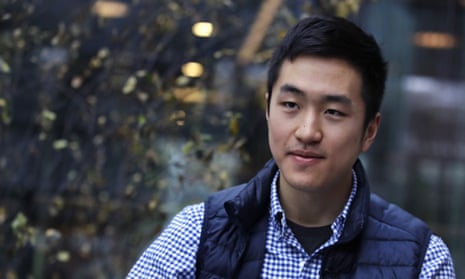The first Dreamer to win the Rhodes scholarship is facing fears he won’t be allowed back into the country after completing the prestigious program.
Jin Park, 22, is a recent Harvard University graduate whose family came to the US from South Korea when he was seven.
He won the Rhodes Scholarship last year – but now risks not being allowed to return to the United States after studying at the University of Oxford in the UK under the grant.
“If I leave, there’s a very real possibility that I won’t be able to come back. That’s the biggest fear for sure,” Park told the Associated Press. “I haven’t really thought about what that’s going to mean if I’m not allowed back.”
Park was the first immigrant enrolled in the Deferred Action for Childhood Arrivals program, which shields young people who were brought to the country illegally as children from deportation, to win the famed scholarship. The group are often called “Dreamers”, after the never-passed legislation known as the Dream Act which would have given them permanent protection.
Under President Barack Obama, who created Daca, participants were allowed to travel abroad under limited circumstances – including academic study – and return to the United States.
But Donald Trump ordered an end to the Daca protections. Federal courts have ruled against him, ordering the program – which protects some 700,000 people – to stay in place for now.
Park and his supporters say that should mean travel abroad is still allowed – but it’s unclear if the federal government will agree.
“The government should enforce the law as it currently stands, to allow Jin to fulfil his scholarly work,” said Kristian Ramos of Define American, an immigrant advocacy group that supported Park’s bid for the scholarship.
Park, a resident of Queens in New York who founded the advocacy group Higher Dreams, first applied for the Rhodes scholarship last year and was rejected because Daca recipients did not qualify. But the organization changed its policy, and he reapplied and won the award.
After graduating from Harvard last month, he plans to enroll at Oxford in the fall in spite of the uncertainty, and hopes to study migration and political theory.
He said he’s had trouble bringing up the potential perils with his parents, who cried when he won the scholarship.
“This was especially meaningful for them. It was like a validation of the sacrifices they’ve made for me,” he told the AP.
Regardless of what happens next, he considers Queens his home.
“Whatever happens, I’m always going to know that fact. Even if I have to spend the rest of my life convincing the administration, or whoever comes next,” he said.
